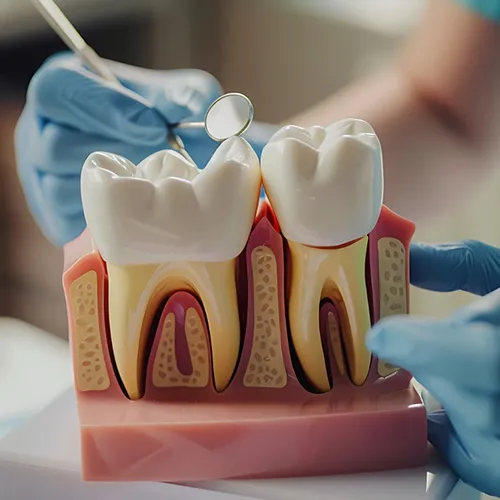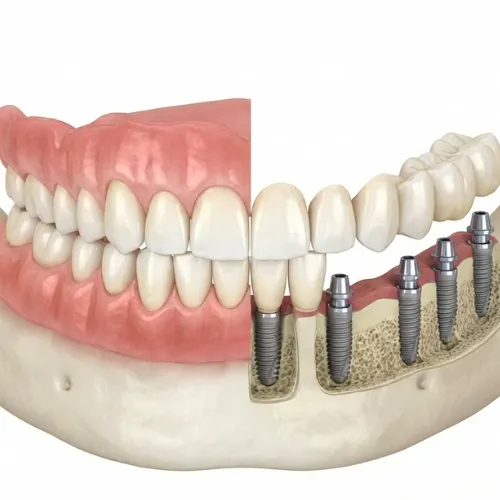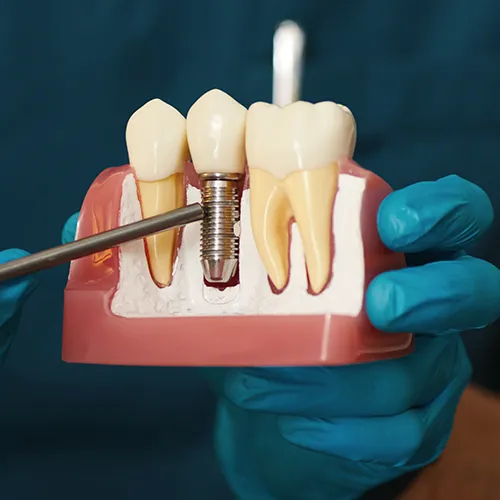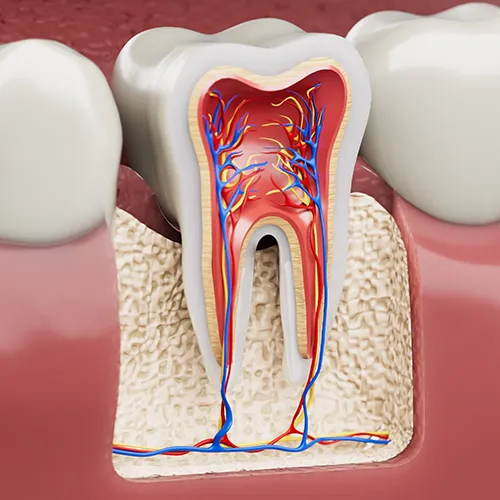Restorative Dentistry, Emergency Dentistry
Can A Root Canal From An Endodontist Save Your Tooth?
Root canals have a notorious reputation for being painful and scary procedures, but they’re often essential for saving your tooth from extraction. Thanks to modern dentistry, root canals are now more comfortable and successful than ever before. In this blog, we’ll explore why you might need a root canal, how to know if it’s the right treatment for you, and whether a badly decayed tooth can be saved.
A root canal is a dental procedure that’s necessary when the soft inner tissue of your tooth, known as the pulp, becomes infected or inflamed. The pulp contains nerves, blood vessels, and connective tissue, and it’s crucial for your tooth’s health and vitality. There are several reasons why your tooth’s pulp might become compromised:
- **Deep Decay: **When a cavity progresses and reaches the inner layer of your tooth, it can cause an infection in the pulp. This is often the primary reason for needing a root canal.
- **Cracked or Chipped Tooth: **If your tooth is cracked or chipped, bacteria can find their way into the pulp and cause an infection.
- Repeated Dental Procedures: Multiple dental procedures on the same tooth can weaken it and increase the risk of pulp infection.
- **Trauma: **A hard knock or injury to your tooth may cause the pulp to become damaged, even if there are no visible signs of harm.
If you’re experiencing any of the following symptoms, you might need a root canal:
- **Severe Toothache: **A persistent toothache that gets worse when you bite or apply pressure on your tooth is a classic sign of pulp infection or inflammation.
- Swelling and Tenderness: Swelling and tenderness in the gums near the affected tooth may indicate an infection.
- Darkening of the Tooth: A discolored or darkened tooth may signal that the pulp inside is dead or dying.
- **Sensitivity to Hot and Cold: **If you notice extreme sensitivity to hot and cold food or beverages that lingers even after the stimulus is removed, it could be a sign of pulp damage.
- Pimple-Like Bumps on the Gums: If you see a small pimple-like bump near the affected tooth, it may be a sign of an abscess, which is a collection of pus caused by a bacterial infection.
If you’re experiencing any of these symptoms, it’s essential to visit your dentist as soon as possible. They will take an X-ray and perform a thorough examination to determine if a root canal is the best course of action.
It’s reassuring to know that even a severely decayed tooth has a high likelihood of being saved by an endodontist through a root canal procedure. This treatment involves the removal of the infected or inflamed pulp, followed by a thorough cleaning and disinfection of the tooth’s interior. Once completed, the tooth is filled and sealed to prevent future infections. Finally, a dental crown is typically placed over the tooth to provide protection and restore its functionality.
However, it’s important to note that a root canal might not be the solution for all cases. If the tooth’s structure has been severely compromised or if the infection has spread to the adjacent bone, extraction could be the only viable option. Rest assured, your dentist or endodontist will carefully evaluate your individual circumstances and recommend the most appropriate course of action.
Contrary to popular belief, a root canal is not a painful procedure. With modern anesthetics and techniques, most patients feel little to no discomfort during the treatment. Here’s what you can expect during a root canal:
- Numbing: Your endodontist will administer local anesthesia to numb the area around the affected tooth, ensuring you’re comfortable throughout the procedure.
- Accessing the Pulp: A small opening is made in the top of the tooth to access the pulp chamber.
- **Removing the Infected Pulp: **The endodontist will carefully remove the infected or inflamed pulp using specialized instruments.
- Cleaning and Disinfecting: The empty pulp chamber and root canals are thoroughly cleaned and disinfected to eliminate any remaining bacteria.
- **Filling the Canals: **The cleaned and disinfected canals are filled with a rubber-like material called gutta-percha, which seals the tooth and prevents future infection.
- **Placing a Temporary Filling: **A temporary filling is placed to close the opening in the tooth until a permanent restoration can be placed.
- **Final Restoration: **In a follow-up appointment, your dentist will remove the temporary filling and place a permanent restoration, such as a crown or filling, to protect and restore the tooth’s function.
After the procedure, it’s normal to experience some discomfort or mild pain, but this can usually be managed with over-the-counter pain relievers and should subside within a few days.
An endodontist is a dental specialist who focuses on diagnosing and treating issues related to the tooth’s pulp and the tissues surrounding the root. They have completed additional training beyond dental school, which makes them experts in root canal procedures.
While general dentists are capable of performing root canals, seeing an endodontist can be beneficial for several reasons:
- Expertise: Endodontists perform an average of 25 root canals per week, while general dentists perform around two. This extensive experience means that endodontists are well-equipped to handle complex cases and ensure the best possible outcome for your tooth.
- **Advanced Technology: **Endodontists often use state-of-the-art technology, such as 3D imaging and specialized instruments, to make root canal procedures more efficient and comfortable.
- Higher Success Rates: Studies have shown that root canal treatments performed by endodontists have higher success rates compared to those performed by general dentists.
A root canal from an endodontist can often save your tooth, even if it’s badly decayed. With their expertise and advanced technology, endodontists are well-equipped to handle complex cases and ensure the best possible outcome for your tooth. If you suspect you might need a root canal or want to learn more about the procedure, don’t hesitate to schedule a consultation with our dental clinic. Our team of experienced professionals is here to help you maintain your oral health and keep your smile beautiful.























